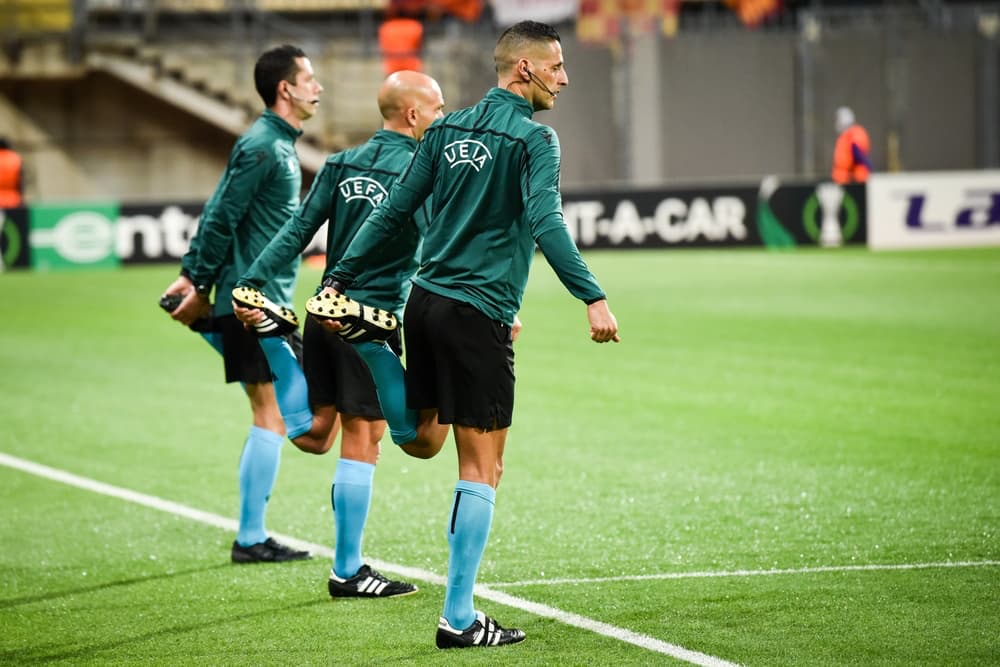
Mikel Merino was penalised for a controversial handball offence that proved to be the catalyst in Inter Milan’s victory over Arsenal in midweek. With English fans puzzled by the decision, it is worth looking at the UEFA handball rule to see how it may differ from Premier League guidelines.
Controversial Arsenal Penalty Decision Proves the Deciding Factor Against Inter Milan
“I don’t understand. There is no danger at all,” said an aggrieved Mikel Arteta in the immediate aftermath of the 1-0 defeat to Inter Milan.
“You cannot react because the ball is very close. We were told at the start of the season that wasn’t a penalty. That was clear. Today it was a different story. But OK. They decide that is a penalty.”
Hakan Calhanoglu duly obliged from the spot in first-half injury time after Mikel Merino was adjudged to have handled the ball.
Mehdi Taremi’s volley from point-blank range did clearly strike the Spaniard’s forearm, although there was little he could have done to escape the trajectory of the ball.
Arsenal were left feeling particularly indignant, with the penalty decision closely following a potential call of their own at the other end of the pitch, where Merino was struck in the head by goalkeeper Yann Sommer who missed the flight of the ball completely.
🔴⚪️⚠️ Arteta: “For me, Merino’s one is never a penalty. But ok, if that is a penalty… then the one on Mikel where Sommer punches him in the head has to be a penalty 100%”.
“These are the margins in this game and it’s very difficult to accept”. pic.twitter.com/9PJX9FmYFP
— Fabrizio Romano (@FabrizioRomano) November 7, 2024
UEFA Handball Rule
In UEFA’s own interpretation of the handball rule – which was updated ahead of the 2023/24 campaign – the governing body said it wishes to relax the whistling of handball offences with regards to deflections, as well as relaxing the punishment for yellow and red cards shown.
Fundamentally, the difference from IFAB’s Laws of the Game is that “no handball offence should be called on a player if the ball is previously deflected from his own body, and, in particular, when the ball does not go towards the goal.”
As for the Premier League, referring chief Howard Webb said ahead of the new season that the following factors would potentially lead towards an official waving away handball protests:
- The player’s arm is in a justifiable position or action
- The threshold for this greatly relaxes, they advise, if there is a clear deflection or change of trajectory for the ball just before it hits the arm
- The player plays a ball onto his own arm
- The arm is supporting the body on the ground while sliding or falling
- If a ball is played by a teammate onto their arm
- Proximity from the defender to where the ball is struck
In English top-flight football, we have witnessed more leniency towards players handling the ball in situations that are deemed justifiable – i.e. keeping themselves balanced with an arm, or a ball struck at point-blank range.
It is very likely that Mikel Merino’s handball against Inter would have been waved away in the Premier League given his proximity to Taremi, but European referees are instructed otherwise.
The rules dictate that an arm in an unnatural position is deemed an offence, which helps to explain Merino being penalised.







